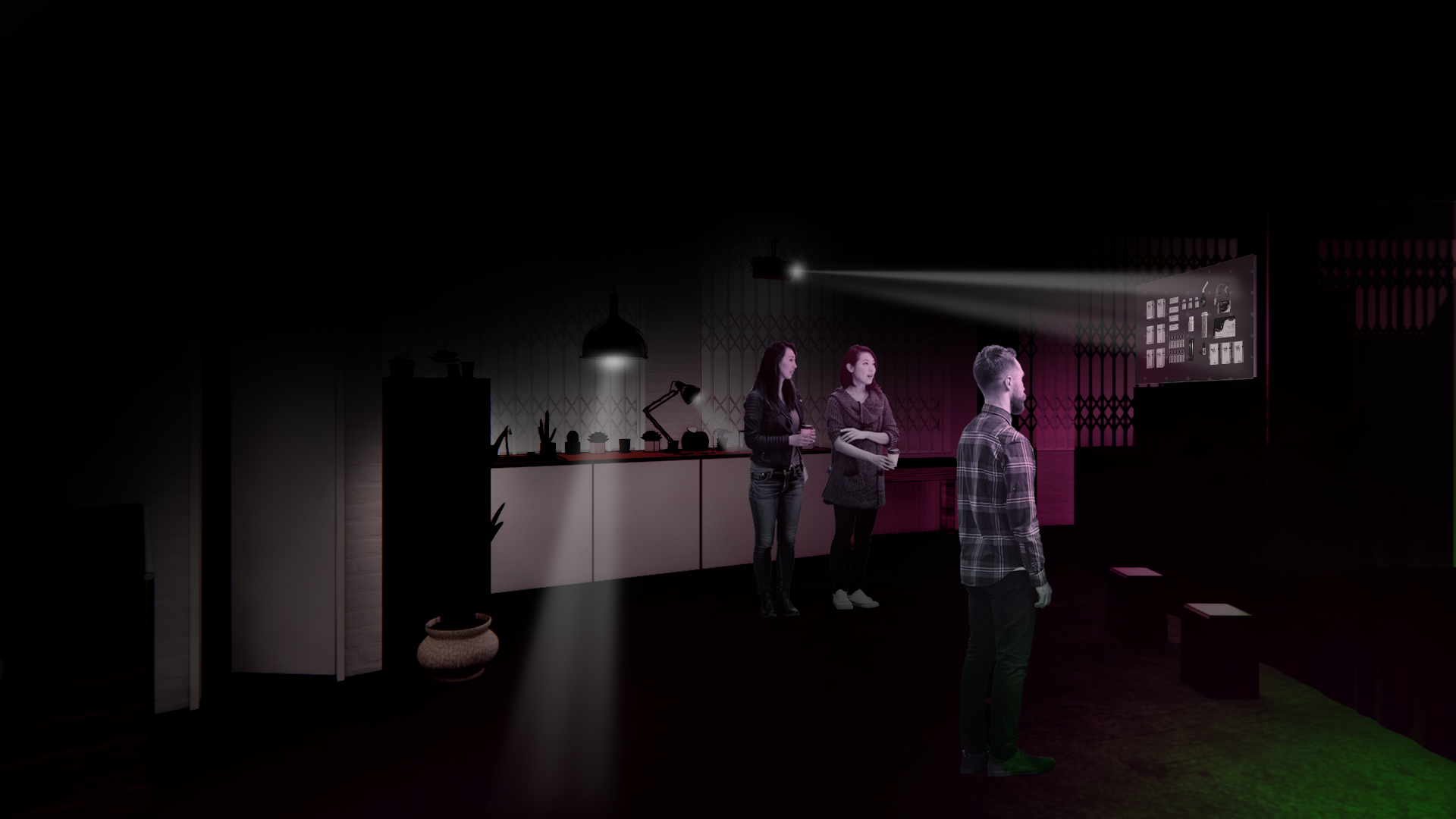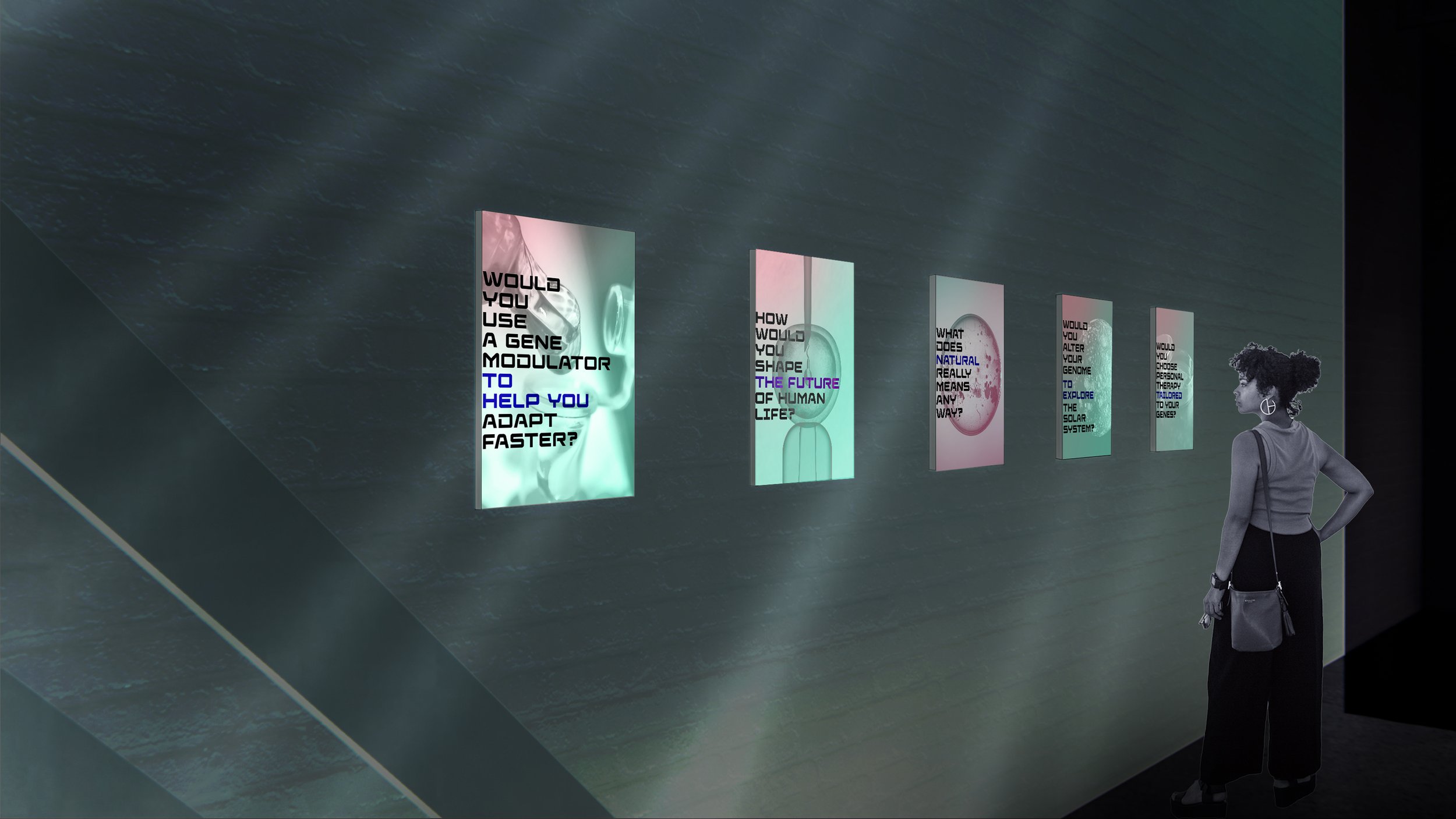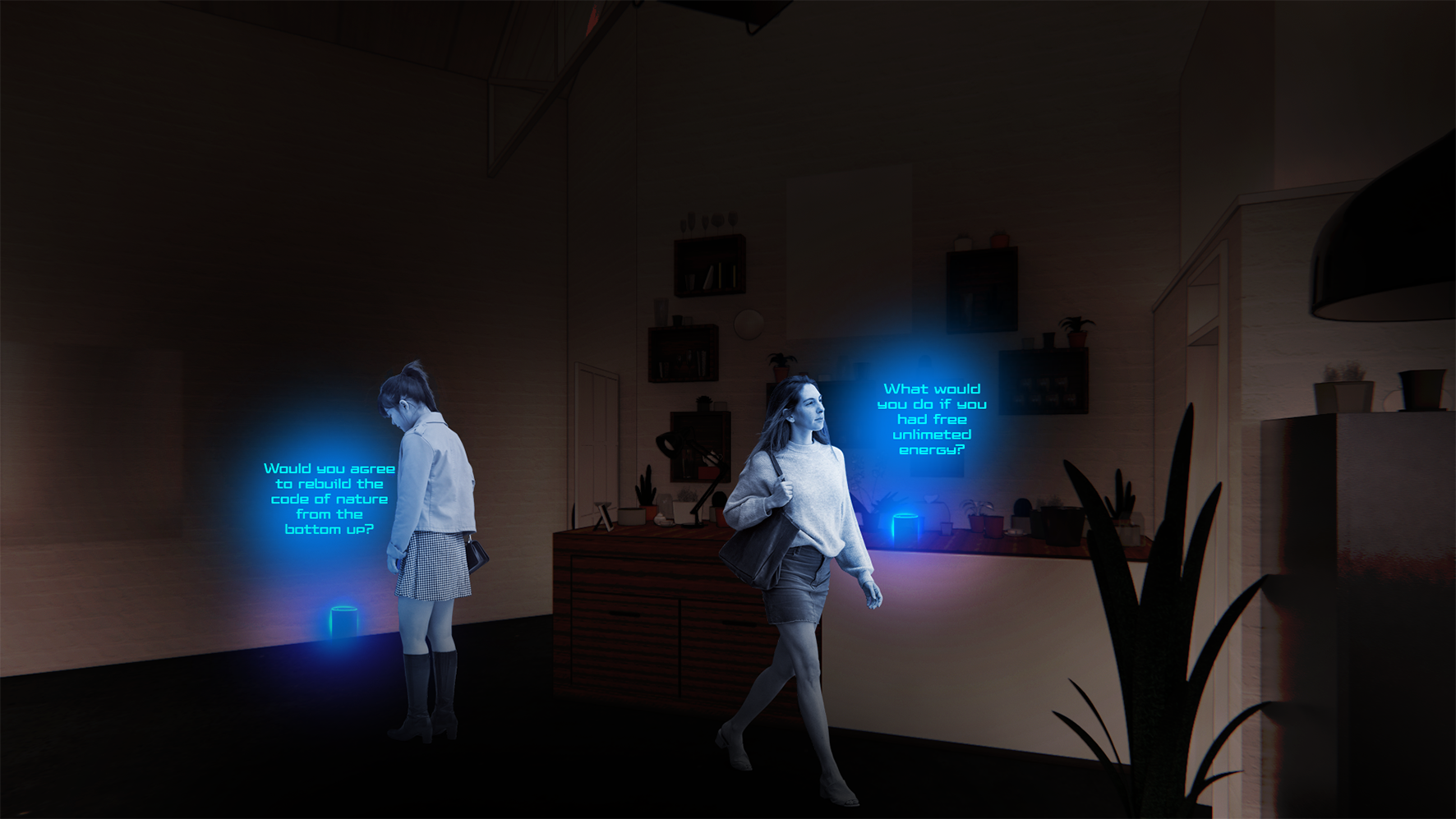
‘Lifecode Dilemma’ by Francesca Coppola
MA Narrative Environment (2019-2021)
Central Saint Martins, London, UK
Key supervisors: Bethany Shepherd
Lifecode Dilemma is a participatory multimedia experience that explores the emotional impact of genetic technology on individuals and families in an attempt to prepare people for a future where some medical conditions could be eradicated.
By navigating a series of choices in the physical space, the project aims to empower visitors in decision-making when it comes to self-directed evolution. Lifecode Dilemma emphasizes personal experiences using a framework of interconnected research questions, asking: a). How closely are our identity and sense of self tied to our health? b). How does our own health affect our ability to think about others? c). Is it still possible to reimagine the future in the Anthropocene era?
Lifecode Dilemma sits in the context of participatory futures studies. It wishes to explore new domains for democratised futures by creating an experiential environment and by developing partnered workshops to keep educating the audiences.
The project could be easily applied for debating the use of CRISPR technology in the future, for bringing people’s voices into the policy’s development, and to question the current beliefs on reproductions technology and on the idea of human nature.
Francesca Coppola / MA Narrative Environment / Central Saint Martins / 2019-2021
Francesca is an Italian designer currently based in London. After graduating from the University of Bologna with a BA in Film Studies, she moved to the UK, where she designed identities for the charity sector, worked as a content designer for a trend forecasting company, and developed advertising concepts for Toyota Motor Europe. Currently, Francesca is graduating with an MA in Narrative Environment from Central Saint Martins. Through the course, she has developed an interest in transforming space into new speculative worlds that make people dream and reflect.
science fiction, healthcare, human reproduction, gene editing, speculative future




